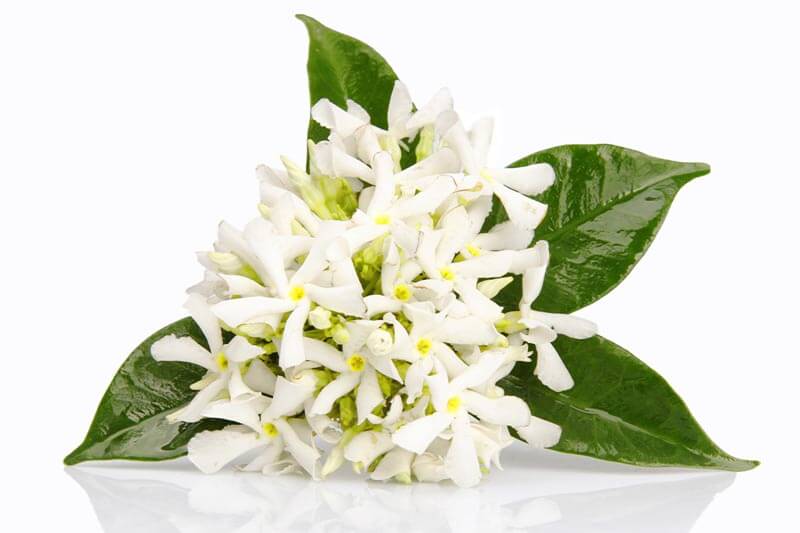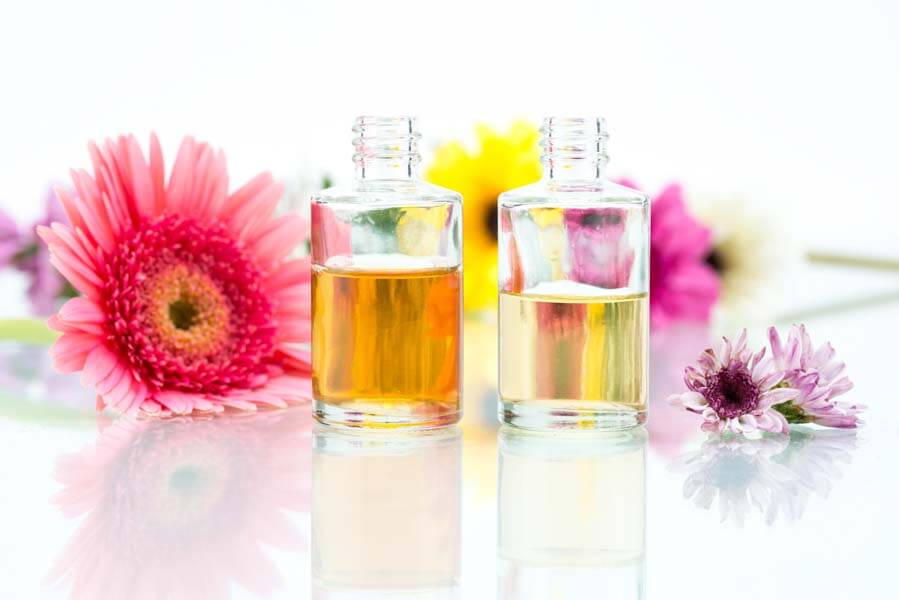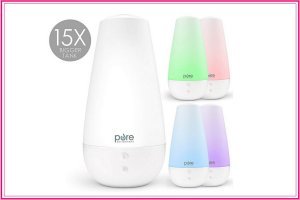
Who doesn’t love the scent of oranges? The sweet, uplifting scent just reminds you of carefree days spent frolicking in the sunshine! Orange oil is one of the most popular oils not only because the fruit is so widely known, but because of the broad range of benefits it has to offer.
Here you’ll get to know more about orange oil, its origins and source, and how it can be one of the best oils to have with you all the time!
Origins and history of orange essential oil
Orange oil, more specifically known as sweet orange essential oil, has been widely known in many cultures since the early times. Its main source, the orange fruit, is one of the oldest cultivated fruits throughout the world.
Oranges are said to have originated from China, with Chinese records as early as 2400 BC mentioning its flavor and qualities. It was also cultivated in various parts of Southeast Asia, along with other varieties grown in India. Much of its cultivation was said to be attributed to the nobility’s fondness of this fruits. This made cultivators compete among each other to produce larger and sweeter oranges to cater to such requests.
Arab traders were said to have brought orange fruits to Africa and the Middle East, where the fruits were made popular by being traded for other goods. During the 15th century, Portuguese travelers from China introduced oranges to various locations in Africa and Europe. The fruit’s luscious flavor soon made it very well-loved, that orange groves were quickly propagated to meet public demand for it.
The Italian explorer Christopher Columbus was also said to have carried orange seeds with him in his voyages, particularly in 1493 on his second expedition. Thus, oranges reached certain regions of the Americas, along with Haiti and the Carribean. In 1513, another famed Spanish explorer, Juan Ponce de Leon, introduced the orange fruit to Florida, where it thrived naturally due to the sunny, subtropical climate. By the 16th century, the orange fruit was introduced in England, where it was again welcomed with delight.
Since then, oranges have been widely cultivated in various countries such as France, Portugal, North and South America, India, as well as in various Mediterranean regions. It’s zesty, tangy flavor made it one of the most popular ingredients in making sweets and jams, as well as an addition to various drinks.
Sweet orange rinds, which contained the oil, were soon discovered to have a more potent aroma than the inside of the fruit. The rinds were soon used to treat various medical ailments. Traditional Chinese Medicine lists it among the treatments for colds, cough, other respiratory ailments, digestive spasms, eating disorders, and for stimulating digestion.
Other cultures have also used dried orange rinds as a tonic and a carminative, while the juice has been used for its hemostatic effect as well as for managing nausea and vomiting. The fresh rind has been used for treating microbial skin infections including acne.
Many cultures in the Middle East, India and the Mediterranean have been said to utilize orange oil for rituals of purification. It has also been attributed with having anti-depressant and aphrodisiac properties!
Today, orange oil’s zesty aroma has made it a favorite for adding flavor to various food items like juices and candy. Various industries also utilize the oil as a preservative and perfuming agent for various items ranging from beauty products to household cleaners.
Currently, most of the world’s oranges are produced by Brazil, accounting for 1/3 of the world’s orange supply, followed by Florida in the United States. Most of the essential oil, however, is sourced from France, Israel, Italy, Cyprus, and the US.
Source and composition of orange oil

If you’ve tried pressing together an orange peel, chances are you’ve noticed orange-scented droplets spray out. This is because most citrus essential oils are found in the fruit peels. Thus, almost all citrus oils are obtained by mechanically cold-pressing these rinds.
There are actually two types of orange oil — sweet orange oil and bitter orange oil. Sweet orange oil is sourced from the fruit peels of the species Citrus sinensis, while bitter orange oil is from Citrus aurantium, both from the plant family Rutaceae. The main difference between these two oils is that bitter orange oil has a dryer citrus scent, unlike the sweetish scent of sweet orange oil. Also, bitter orange oil has been found to cause a greater risk for phototoxicity. This article mainly talks about sweet orange oil, though many of its benefits also apply to bitter orange oil.
Extraction of good-quality orange oil requires that the oranges be harvested at a specific time to optimize its yield and aroma. To come up with 20 ounces of the oil, you would usually need about 1,000 oranges! The extracted oil usually has a greenish-orange hue, and smells like a very concentrated version of sweet oranges.
A tip in choosing good quality orange oil is to buy one that uses organically grown oranges. This is because the process of cold-pressing the peel also extracts pesticides and toxic substances that may have been sprayed over the fruits.
Studies have found that orange essential oil is packed with powerful phytochemicals that help fight disease. The oil mainly consists of d-limonine, b-myrcene and a-pinene, along with a variety of other components like citronellal and geranial. These are mainly responsible for its aromatic and beneficial properties. D-limonene is the most abundant (around 80-96 percent), with research confirming its many health benefits.
What are some benefits of orange oil?

Just the thought of oranges can give you an uplifting feeling! Orange essential oil’s warm, cheerful scent does wonders for your body, mind and spirit. Its natural bioactive compounds can tremendously help with digestive problems, as well as in treating respiratory and skin conditions. Plus, research has found that orange oil may help improve cognitive function. As if these aren’t good enough reasons to have a bottle, simply inhaling a drop or two can instantly make you happier!
Here are more reasons to love this essential oil!
Specific benefits of orange oil

- It’s a potent antibacterial – Like many other essential oils, orange oil has been extensively studied for its antimicrobial activity. Its unique composition, however, makes it stand out as a potent antibacterial. Various studies over the past 20 years have shown its merit in killing a wide range of pathogenic microbes, including the most common causes of infections. What’s more, its individual components have been found to inhibit a number of bacterial strains like Staphyloccocus, Salmonella, and Pseudomonas. Additionally, certain components of the oil possess wound healing properties, making it ideal for preventing infection from cuts and wounds while promoting more rapid healing.
- It aids in pain relief – A couple of studies from 2007 and 2016 discovered that d-limonene, the main component of orange oil, was able to block pain sensations. This effect was due to its inhibitory action on pain sensory neurons, called nociceptors. This makes orange oil useful in relieving various forms of body aches and pains.
- It helps ease spasms – Spasms in various smooth muscles cause bothersome symptoms like diarrhea, stomach pain, coughing and cramps. Orange oil can help relax such spasms and prevent further discomfort. So the next time you feel spasms or cramps coming up, start inhaling orange oil via a diffuser or through your palms cupped over your nose. You can also massage a few drops diluted with a carrier oil over your abdomen or other affected areas.
- It helps clear up and prevent acne – Orange oil’s antiseptic action helps fight off acne-causing bacteria on the skin, while its anti-inflammatory action prevents pores from swelling. Plus, it can soothe dry, irritated skin with its nourishing compounds. Try diluting a drop of orange oil with a carrier oil of your choice, then dab on acne-prone areas. You can also use it with other acne-fighting oils in a cream to help target acne.
- It relieves flatulence – Excess gas in the stomach or intestines can be quite painful! If not treated immediately, it can push upward and cause indigestion and chest pain. Orange oil is a carminative which helps remove the buildup of gas in the digestive system. Take advantage of its warming effect by massaging some of the dilute oil over the abdominal area to help expel accumulated gas.
- It’s a natural anti-fungal – Orange oil has been tested against various fungal strains, and was found to be effective in inhibiting fungal and mold growth. You can use it as a supportive treatment for mild skin fungal infections. This also makes it a handy household spray for surfaces prone to mold growth.
- It rejuvenates the skin and helps fight skin aging – Orange oil’s numerous properties couldn’t be more perfect for beautifying the skin! Being antioxidant and anti-inflammatory, it keeps skin cells healthy and wards off damage. Plus, studies have found that certain components of the rind extract can block skin enzymes that cause wrinkles when activated by sunlight. These compounds, called polymethoxyflavones, can protect the skin from UV damage. Additionally, orange oil’s main compound, d-limonene, helps in skin regeneration, collagen production and wound healing. All of these make for an excellent solution to skin problems!
- It fights cardiovascular disease – Citrus oils, including orange oil, are rich in compounds called flavonoids which have numerous health benefits. Flavonoids found in orange rind and oil were found to have beneficial effects on the cardiovascular system. Aside from reducing blood pressure, these compounds protect the heart by reducing triglyceride and cholesterol levels.
- It strengthens the immune system – The compounds present in orange oil, namely limonene and pinene, were found to increase the levels of white blood cells in the body. White blood cells play critical roles in immunity, such as fighting off invading pathogens and responding to disease and inflammation. Plus, it increases the absorption of vitamin C, which is known to promote immune function. Simply inhaling orange oil gives your immune system a massive boost! Try loading a drop or two in a personal inhaler or running it regularly through your diffuser.
- It’s an effective digestive aid – Orange oil can help treat a host of digestive problems. Being a stomachic, it promotes digestion and treats dyspepsia. It’s anti-inflammatory effect is useful for conditions like colitis and Crohn’s disease. Orange oil also stimulates the gallbladder, which encourages bile flow to facilitate digestion. It also promotes proper circulation as well as lymphatic stimulation, drawing out toxins and boosting nutrient absorption.
- It instantly boosts mood and eases mild depression – The very scent of oranges triggers happy thoughts and feelings. This is one of the reasons why orange oil is commonly added to mood-lifting aromatherapy blends. In fact, studies have found that the oil helps normalize certain hormone levels and stimulates the autonomic nervous system, both of which play a role in the treatment of depression. It was also found to reduce levels of cortisol, the stress hormone. These findings strongly support orange oil’s potential to treat mild forms of depression. Whenever you’re feeling blue or need a boost of positivity, try diffusing orange oil around the room for an uplifting ambiance.
- It has potential cancer-fighting activity– Limonene and other compounds in orange oil have been investigated over the past three decades for their anti-cancer activity. Studies have found that limonene, in particular, was able to reduce the incidence of breast tumors. What’s more, many other studies have found that it suppressed the growth and metastasis of other cancers, such as lung, colon, and pancreatic cancers. Regular inhalation of orange oil may be able to reduce your risks for cancer as well.
- It’s an effective insect repellent – Many insects absolutely hate the smell of orange oil! From ants to moths and houseflies, orange oil can help repel these insects and keep your home free from annoying creepy-crawlies. Plus, if you grow certain herbs or vegetables, orange oil works as an organic pest-control method! You can concoct a simple insect repellent spray to spritz over areas prone to insect invasion.
- It works great as an air purifier – Citrus oils, especially orange and lemon oils, effectively neutralize stale, stuffy and smoky odors. Their uplifting scent instantly refreshes the air in any room. Simply run a few drops through your diffuser to take advantage of its cheerful, clean aroma.
- It’s a useful aid in respiratory conditions – Cough, colds and the flu bring about annoying symptoms of chest and nasal congestion. Orange oil helps ease respiratory spasms associated with coughing. It also provides excellent immune support to hasten recovery, helps fight off infections, and promotes proper circulation to help relieve congestion.
- It maintains the shine of wood furniture – Wood furniture can get dull over time from dust, scratches, and general wear and tear. One of the unique uses of orange oil is that you can actually use it to restore polish and shine to any kind of wood furniture, from tables and chairs to countertops and floors! Check out our easy wood furniture polish recipe below for instructions.
- It relieves stress and anxiety – Orange oil’s cheerful aroma has been found to create a calming and uplifting effect on the nervous system. Results from various studies show that simply inhaling the oil can help reduce anxiety by reducing cortisol levels and slowing down irregular pulse rates. Diffuse or inhale some orange oil when you’re feeling excessively tired, anxious or angry, and you’ll fee calm and relaxed in just a few minutes.
- It may boost cognitive function – Recent studies have investigated orange oil’s potential in improving mental functioning. They found that using orange oil as well as other oils for aromatherapy was able to significantly improve cognitive functioning! This has led to orange oil aromatherapy being considered as a potential therapy for dementia.
Things to keep in mind when using orange oil
Orange oil is relatively safe to use, but as with all essential oils, it should be used only upon dilution with a carrier oil. Also, it isn’t advisable to take large amounts internally. This can cause nausea and vomiting.
One main concern with orange oil is that it can cause phototoxicity. This means that you shouldn’t expose your skin to sunlight after application of the oil. Also, if you are pregnant, have epilepsy, or other medical conditions, it’s best to first consult your physician or a health care expert in aromatherapy.
Orange oil is very versatile and blends well with a lot of other essential oils. These include coriander, sandalwood, bergamot, geranium, clove, ginger, clary sage, myrrh, jasmine, lavender, lemon, vanilla, fir needle and nutmeg.
Orange oil application tips

There are numerous ways you can make the most of orange oil’s cheerful scent. Here are a handful of ideas:
Add a drop of orange oil to your regular moisturizer to take advantage of its skin rejuvenating and anti-wrinkle effects.
Feeling anxious, down or stressed? Place a few drops of dilute orange oil on your palms and rub together. Inhale using deep, calming breaths.
Flavor your gargles and toothpastes with a few drops of orange oil. Plus, it also adds to the bacteria-fighting property of your oral hygiene routine. It helps whiten teeth too!
Add about 5-10 drops to water in a spray bottle, shake well, and spray around a room to freshen it up.
Get a clean, slightly damp cloth and place a few drops of orange oil. Toss this into the dryer with your newly-washed laundry for a citrusy scent.
Add 10-15 drops to your bathwater to shoo away the blues, boost your immune system, and ease any spasms and aches.
For a quick sink deodorizer, mix together a couple drops of orange oil with one cup of lemon juice and some water. You can also add this to the bottom of your dishwasher and use the rinse cycle for a natural disinfectant.
Orange oil DIY recipes

Orange and aloe anti-acne overnight mask
Ingredients:
- 3 drops orange EO
- 1 teaspoon aloe vera gel
Directions:
- In a dry, clean bowl, mix together the aloe vera and orange oil.
- Apply on your face, massaging in circular motions and concentrating on acne-prone areas.
- Leave overnight and wash off in the morning.
Anti-aging serum recipe
Ingredients:
- 5 drops orange EO
- 5 drops geranium EO
- 5 drops myrrh EO
- 5 drops frankincense EO
- 10 drops sandalwood EO
- 10 drops rosehip seed oil
- 10 drops carrot seed oil
- 1/2 cup apricot kernel oil
Directions:
- In a small, dark colored bottle, mix together the apricot kernel, rosehip seed and carrot seed oils.
- Add in each of the essential oils, shaking or stirring gently with each addition.
- Let stand overnight for the oils to mix. Store in a cool, dry place.
- To use, place an ample amount onto your fingertips and apply over face and neck in circular motions.
Super Citrusy Home and Kitchen Cleaner
Ingredients:
- 20 drops orange EO
- 20 drops grapefruit EO
- 20 drops lemon EO
- 2 oz white vinegar
- 14 oz water
Directions:
- In a 16-oz spray bottle, add together white vinegar and half the amount of water.
- Mix well, then add in all the essential oils.
- Add in the rest of the water and shake well.
- To use, spray on surfaces and corners that need cleaning and wipe with a sponge or cloth.
Minty Orange Body Salt Scrub
Ingredients:
- 8 drops orange EO
- 5 drops peppermint EO
- 2 drops rosemary EO
- 2 tablespoons grapeseed oil or other carrier oil
- 2 teaspoons aloe vera gel
- 1/2 cup sea salt
Directions:
- In a glass bowl, mix together the salt and carrier oil using a metal spoon.
- Add in the aloe vera gel and mix thoroughly.
- Add in each of the essential oils in different areas of the salt-oil mixture.
- You can also stir the salt mixture after each of the essential oils has been added.
- Store in a tightly-lidded glass jar.
- To use, get an ample amount and massage over your skin using gentle circular motions. Rinse off.
Honey Orange Anti-acne mask
Ingredients:
- 20 drops orange EO
- 1 tablespoon virgin coconut oil
- 3 tablespoons raw, organic honey
- 1 tablespoon apple cider vinegar
Directions:
- If you have a hand blender, you can simply mix together all of the ingredients.
- If you won’t be using a hand blender, you first have to gently melt the coconut oil.
- Once melted, place in a bowl and swiftly mix in the honey using a fork.
- Add in the apple cider vinegar.
- While the coconut oil is still liquid, add in the orange oil and mix thoroughly.
- Store in a tightly lidded glass jar.
- To use, get a small amount and massage over face. Leave on for at least 15 minutes (or overnight) and rinse.
Citrus Garden Insect Spray
Ingredients:
- 4 drops orange EO
- 2 drops Roman chamomile EO
- 2 drops lavender EO
- 2 drops grapefruit EO
- Distilled water
Directions:
- Fill a clean 4-oz spray bottle about a quarter with distilled water.
- Drop in each of the oils, shaking well after each addition.
- Add in more water until the bottle is almost full. Shake thoroughly.
- To use, spray on affected leaves of plants that are prone to insect infestation.
Citrusy Wood Furniture Polish
Ingredients:
- 10 drops orange EO
- 1/ 4 cup vinegar
- 1/4 cup olive oil
Directions:
- Mix together olive oil and vinegar in an 8-oz spray glass bottle.
- Add in the orange oil in portions, mixing after each addition.
- To use, spray a small amount onto a clean microfiber cloth and use this to wipe wood furniture and other wood surfaces.
Infection-fighting diffusion blend for colds
Ingredients:
- 20 drops orange EO
- 10 drops pine EO
- 10 drops eucalyptus EO
- 10 drops juniper EO
- 6 drops rosewood EO
- 6 drops basil EO
- 4 drops ginger EO
Directions:
- Mix together all of the essential oils.
- Load an ample amount into the diffuser and breathe in to help fight colds and flu.
Conclusion

With its wonderful aroma and benefits for your home and health, orange oil is a must-have for every household. Have any other uses for this cheery oil? Do share them in the comments below!










